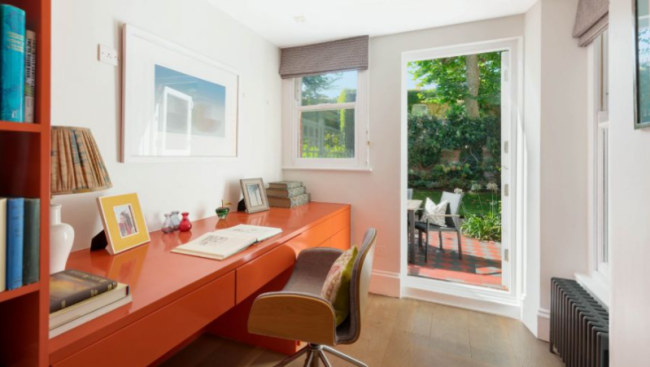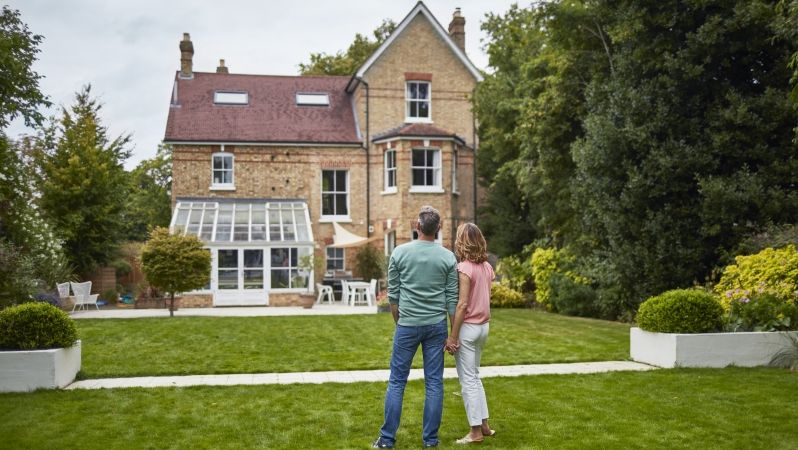
Take 5… Homes with offices
Incorporating a well-designed office into our homes can make our lives simpler. We’ve picked five truly wonderful homes that have a home office.


There are any number of reasons why you might be looking to move on from your current home, whether you’re moving in with a loved one, looking for a change in location or lifestyle, or upsizing to make space for a new arrival. Moving on from a home you love is a big decision, which is all the more reason to make the process as transparent and stress-free as possible.
In this practical guide, Sharnie Rogers, head of Strutt & Parker’s Suffolk branch, offers her top tips for selling your home, helping you navigate everything from preparing your property for viewing, right through to the timeframes you can expect for close of sale.
A market appraisal is the process by which an agent values your property and offers a possible guide price. An appraisal will give you a sense of how much your home will sell for in the current climate and can even help identify potential areas you could improve to help increase the value of your property.
When starting the process of selling your home, it’s important to understand your motivations and the urgency behind your move. Communicating this to your estate agent will help them provide you with the best possible advice in terms of improvements to make your property more attractive to buyers, in your desired timeframe.
Sharnie’s advice is to always hold fire on home improvements until after your market appraisal, even on maintenance such as painting walls. She says: “I would always tell sellers to wait and speak with the agent before they spend money trying to make their home ‘ready to sell’. We often find that buyers want to put their own stamp on a new property, so while touching up might feel like it’s making the property more attractive, the bottom line is that it’s your agent’s job to help buyers see the potential in your home. It’s very unlikely that a lick of paint is going to make the difference between the full asking price and a £10,000 drop.”
When it comes to bigger improvements such as outdated heating or structural maintenance, an agent will be able to help you weigh up whether completing this work will add value to your home before you sell. Sharnie explains: “Very often, even if there is work that I think seriously should be considered, rather than telling you to go ahead and do it, I would instead ask you to get quotes. So if, for example, your cesspit or your septic tank is unlikely to comply, I would advise you get that quote done and we can decide whether we go ahead, or market without it and let the buyer take on the cost. The cost of this can be a substantial amount and it’s important that you factor this into your overall budget or even move costs.
There are a number of documents that you will need to supply during the process of selling a house. Not all of these are essential but by getting these ahead of the sale, will save you much-needed time and make the process easier in the long run.
These include:
When beginning the process of selling your home, Sharnie advises instructing a lawyer as soon as possible. One of the biggest delays in the buying and selling process is in supplying the right documents and certificates. If you get to the point of offers being made and still haven’t retrieved the right paperwork to move the sale forward, the whole process is going to stall.
But how do you pick your lawyer? “Unless you've got a family lawyer, I would always advise that you wait for your agent to recommend a lawyer. This is because it's very important that relationship between the two works in order for your sale to process smoothly. The whole point of us getting you across the line is that we work together. We’ll constantly need to be asking each other questions and exchanging documents, so choosing a lawyer we already have that relationship with is only going to work in your favour. A good agent will have knowledge from previous sales and recommendations from clients, compared with those they have not had great experiences with and can help make this process easier for you.”
Generally, if you are selling your primary property (i.e. the home you currently live in), you will not usually have to pay any tax on the sale.
The two most common taxes associated with buying and selling property are Stamp Duty and Capital Gains Tax. If you are selling in order to buy, then Stamp Duty will come into the equation in your onwards purchase, however you do not pay Stamp Duty on the house you are selling.
Capital Gains Tax is only generally payable if you are selling a second home – one that is not your primary residence. If you are selling a second home or investment property, you pay tax on any profit you have made since the initial purchase of the property, in most cases. But if your situation is more complex, then we recommend getting advice from a tax specialist fromthe outset, as it could affect your decisions moving forward.
There are some fees that sellers need to be aware of when selling a home. Some of these are nominal, while some costs, such as those associated with the legal process of selling a house, can rack up depending on the speed and complexity of your sale. Here are few to keep in mind:
Once you’ve made the decision to sell your home, it can be all too easy to get ahead of yourself and start window-shopping for your next place to settle. However, if you start looking too soon, Sharnie warns that you could find yourself heartbroken if you’re not in a position to move that sale along.
“It's almost a chicken and egg scenario,” Sharnie says. “Unless you can buy a property without the sale, it is very subject to the vendors’ requirements. So if I've got an elderly party who clearly needs to be moved out and settled before the sell, that's clearly an exceptional circumstance. But I would normally advise to sell first – find a buyer, or at very least have your home on the market before you start looking. Otherwise, the chances are you’re going to lose it to a buyer who's in a better position.”
It is commonly said that the best time of year to sell a house is in the spring. The truth is that there a number of factors at play when considering the best time to sell a house, and that any time of year can work to your advantage.
So, why is spring so often cited as a good time to sell? The thought behind this is that your home is likely to look better in the spring time. With brighter days and gardens in full bloom, it’s easy to see why your home might be more pleasing to the eye in spring or summer months. However, sellers should also take into account the sheer number of properties entering the market at this time. Therefore, while your property may well appear at its best, it’s also got a lot more competition in the market.
Sharnie expands further: “It’s true that country houses or houses with big gardens do tend to sell well in the spring. But especially in the current climate, any day is as good as any. In a market where there are so few properties and so many buyers, you could viably sell your home at any time of year – even in the winter.”
There is no exact answer to this. Completing on your sale from the moment an offer is made can take anywhere from a week to a year depending on the personal situation of both the buyer and seller, the length of the chain you’re in, and any other legal hiccups that come out of personal finance checks and property surveys.
Speaking from experience, Sharnie says: “When advising on what to expect at closing when selling a house, I would normally tell someone it's going to take about 8 to 10 weeks. From point of offer being agreed, that’s the average. But we've done it in a week and we've done it in a year. So we've had situations where a vendor has a specific date they want to move by, but they were happy to agree a sale early. And we've exchanged with a delayed completion for a year. Equally, we've had cash buyers that will take a view on searches, surveys and just exchange within a week. It really does depend on personal circumstance.”
Looking for more personal advice around what to expect when selling a house? Get in touch with your local estate agent to book in an initial chat about the process of selling your house.